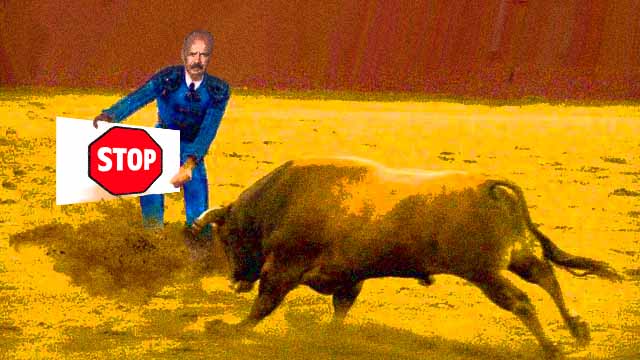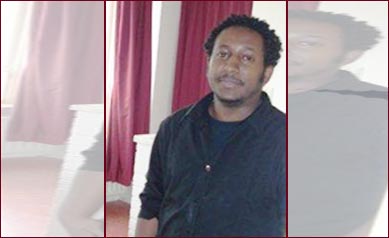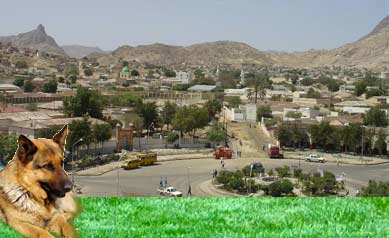Government in Exile: Eritrean Integrative Discourse

Over the last three decades Eritreans have tried to unify themselves by creating alliances or creating a new organization. Though some people may have not been considerate, no one can undermine the efforts done by Diaspora Eritreans. But there has been confusions on what our role should be on this endeavor. The divisions and aspirations are idealistic, but they needed pragmatic approach to be solved. Eritreans should work for unity by identifying their unifying purposes. After all, our main problem now is how to get unified. That is where Eritrean Government Peace Commission in Exile gets involved.
Greg Sartell on his how protests become successful social movements writes that, “throughout history, social movements –small groups that are loosely connected but united by a shared purpose have created transformational change.”
The Eritrean struggle for change, can only succeed if it solves the problems in an integrative approach. Awate team has initiated the EGiE project not only as a uniting agenda but as a measurable goal to bring Eritreans together. The EGiE is believed to be a means to achieve and aquire the aspirations of the Eritrean people. The question is, do the stakeholders: Social movements , the Media, Civic societies and Religious leaders, political and the EGiE know their terms of references.
In his connecting the dots presentation Professor Mohamed Beshir illustrates the ideal scenery of governmental roles on a concentri cirle diagram. The outer most of larger crust represents the people and their roles. 1) Peoples’ Movements, demonstrations, elections, etc. The area (donut) between each consecutive concentric line defines the terms of references or for each sector to play in the government. 2) Media, Civic, religious, advocacy, trade, think-tank, etc., 3) Political Parties: Two or more parties, 4) Governing Body: Ruling/elected political officials, 5) Government: Public
That means one can not serve as civic and act individual at the same time or you can not be a media and civic at the same time. “No dual citizenship”. Not knowing our roles in the struggle has been one of the setbacks for the opposition. Now, to make the struggle successful, the integrative goal should be to set EGIE as priority.
Eritrea is at a crucial time, people should take a risk to trust each other in unity for the sake of other people. ንክንሰማማዕ ንሰማማዕ!! The writer suggests an integrative approach to close the gap between Eritrean organizations and politicians.
Integrative reconciliation is relational cross-links representing new relationships between new concepts and existing conceptual structure. Thus, integrating new concepts entails reconciling new information with the old information. An integrative approach to building participation involves several steps: Linking an organization’s participation-building activities to its core values and purpose by choosing participation goals that support that purpose. Integrative thinking is the ability to face constructively the tension of opposing ideas. And, instead of choosing one at the expense of the other, generate a creative resolution of the tension in the form of a new idea that contains elements of the opposing ideas but superior to each. An integrative discourse does not offer specific recipes or mandates for action, but instead opens spaces for new inquiries and new ways. The integrative argumentation takes a step further, as not all the considered arguments lead to the same conclusion. In this case, more nuanced thinking and weighing of the arguments is needed to draw conclusion. Integrative negotiation—also called integrative bargaining, interest-based bargaining or win-win bargaining—is a negotiation strategy in which the involved parties work together to find a solution that satisfies the needs and concerns of each. Integrative goal (shared purpose)
Bayto will add Enough to PFDJ’S government and Yes to the Eritrean Government in Exile slogan (ይአክል! ጭርሖ) mobilize change seekers to collaborate and create grassroot chapters and transform Eritrean community through the slogan, Yiakl PFDJ! and Yes to EGiE! We would rather argue our differences, political ideology, and hierarchy later.
EGiE/EPRiE will recognize and agree to each other and focus on problem-solving, not advancing a partisan agenda or a particular ideology.
One of EGiE/ EPRiE duties would be to help define the roles and limits each one in the struggle. It should serve as a solution for the confused state we are in.
EGPCiE is expected to work independently to reach out and help narrow gaps and work to resolve conflicts and help reconciliations.
EGPCiE to help Eritreans reconcile differences and work for united purpose. Know the politics of the politics of give and take, avoid issues or problems because others have made them matters of partisan dispute, and learn to forgive each other.
”EGiEl” in collaboration with others will work on the renaissance of independence spirit. Use the knowledge of Eritrean Ex- high officials, military officers, and opposition political parties. Use the knowledge of Eritrean Ex-high officials, military officers, and opposition political parties to help the new ideas and efforts put forth to give it credibility and share their long experience of opposition activities in Diaspora and link the Eritrean Government in Exile with their connections and community influence.
Eritrean Peace Commission in Exile recognizes that Ato Saleh Younis’ and group has reinitiated the setting of the EGiE, which Ato Herui Tedla and his group had worked and made progress before fifteen years. The new initiative will be built on that foundation. (አልጊብካ ምህናጽ). EGPiE suggests Ato Saleh Younis to lead the provisionally and Ato Herui Tedla to work as high-level advisor and lead one of the very important roles he deems he should work on. This must be done ASAP.
EPRiE will conduct democratic nonpartisan elections. In nonpartisan elections, each candidate for office is eligible based on her or his own merits rather than as a member of a political party. No political affiliation (if one exists) is shown on the ballot next to a candidate.
EGiE will appoint executive officers to be approved by EPRiE.
The president will be elected within 6 months. Each political party, civic or individual will present a candidate. Every elected must give up his/her organization and be solely for EGiE. The elected will be accountable to the EPRiE.
Suggested action items for “EGiE”
- 1. Coordinate our diplomatic activities; Work on diplomacy with neighboring countries governments around like Ethiopia, other countries, US representative and their opposition parties, civic and media.
- 2. Condemn all forms of agreements that the dictatorial regime of Eritrea enters with any foreign government or
- 3. Call on the Eritrean defense and security forces to stand with their people and be an instrument in charting the democratic change for
- 4. Work earnestly in the development and application of a common transitional
EGiE to solicit support from international media, NGO, government officials, influential Eritrean and friends of Eritreans around the globe. The Ethiopian government through its embassy should be approached to sever its ties with Isaias through media and diplomacy. Isaias can only be defeated with a crisis impacted situation. The closer of the Sudan boarder was the crisis which forced him to make amends with Ethiopia.
EGiE/EPRiE/EPCiE Support and empower Eritrean religious leaders to challenge the government’s injustice supporters and call for repentance and reconciliation. Work on diplomacy with neighboring countries governments around like Ethiopia, other countries, US representative and their opposition parties, civic and media.
EGiE/EPRiE to respond to the general public’s fear of failure and the uncertainty to handle and save the victory post Isaias by building a plan and capacity to survive the Victory by unifying all justice seekers with a dynamic strategy to and create or find common goals to unify Eritrean Political and civics and come up with policies reflective of its diversity in Gender, Religion, Age, etc.
EGiE/EPRiE to identify and support active oppositions and encourage the passive change seekers. The new PFDJ converts should empower not undermine the opposition people who have been invested for decades in the movement. All the new participants of the change should try to be fuels to the fire and accelerate the existing momentum and create a force to push the regime off the cliff. Erode the support of Isaias in our community and garner support from all areas: Media, influential people (Eritrean and friends of Eritreans)
The “Yiakl! May have been stretching more than it ought to be and try to handle civic, media, political party and that is where the EGiE, EPCiE and other initiatives will come to take the load of and create dynamism to the struggle. EGiE, EPCiE will build on the foundation set by all Eritreans justice seekers in the past over 30 years. አልጊብካ ምህናጽ!
https://www.constitutionaltransitions.org/wp-content/uploads/2017/05/Decentralization-in-Unitary-https://hbr.org/2017/01/how-protests-become-successful-social-movements
Non-partisan democracy – Wikipedia
https://en.wikipedia.org › wiki › Non-partisan democra
https://www.igi-global.com/dictionary/integrative-reconciliation/14966




Awate Forum